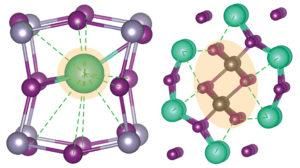Wageningen UR realises bioasphalt with lignin in Zeeland
Bioasphalt for roads in Zeeland is being developed by Wageningen UR Food & Biobased Research, the Asfalt Kennis Centrum (Asphalt Knowledge Centre, AKC) and the company H4A from Sluiskil (NL). Zeeland Seaports is a project partner with interest in potential applications for the asphalt.
Lignin from plants in asphalt
Fossil bitumen – the main ‘glue’ in asphalt roads – is replaced by the biobased adhesive lignin in this bioasphalt. Lignin is a natural adhesive material which gives structure to all kinds of plants and trees and is, for example, an important component of straw. The first specimens of asphalt concrete based on lignin were recently created and the involved partners are busy testing and optimising its properties.
Benefits for the environment and noise levels
Lignin can replace fossil bitumen (currently made from petroleum in a process which releases a great deal of CO2), substantially reducing the environmental footprint of asphalt. It is also expected to improve functional properties of the asphalt, such as rolling resistance, and to make roads quieter. Various governments and companies have already shown a lot of interest in this promising development.
Most read news
Other news from the department science

Get the chemical industry in your inbox
By submitting this form you agree that LUMITOS AG will send you the newsletter(s) selected above by email. Your data will not be passed on to third parties. Your data will be stored and processed in accordance with our data protection regulations. LUMITOS may contact you by email for the purpose of advertising or market and opinion surveys. You can revoke your consent at any time without giving reasons to LUMITOS AG, Ernst-Augustin-Str. 2, 12489 Berlin, Germany or by e-mail at revoke@lumitos.com with effect for the future. In addition, each email contains a link to unsubscribe from the corresponding newsletter.


























































